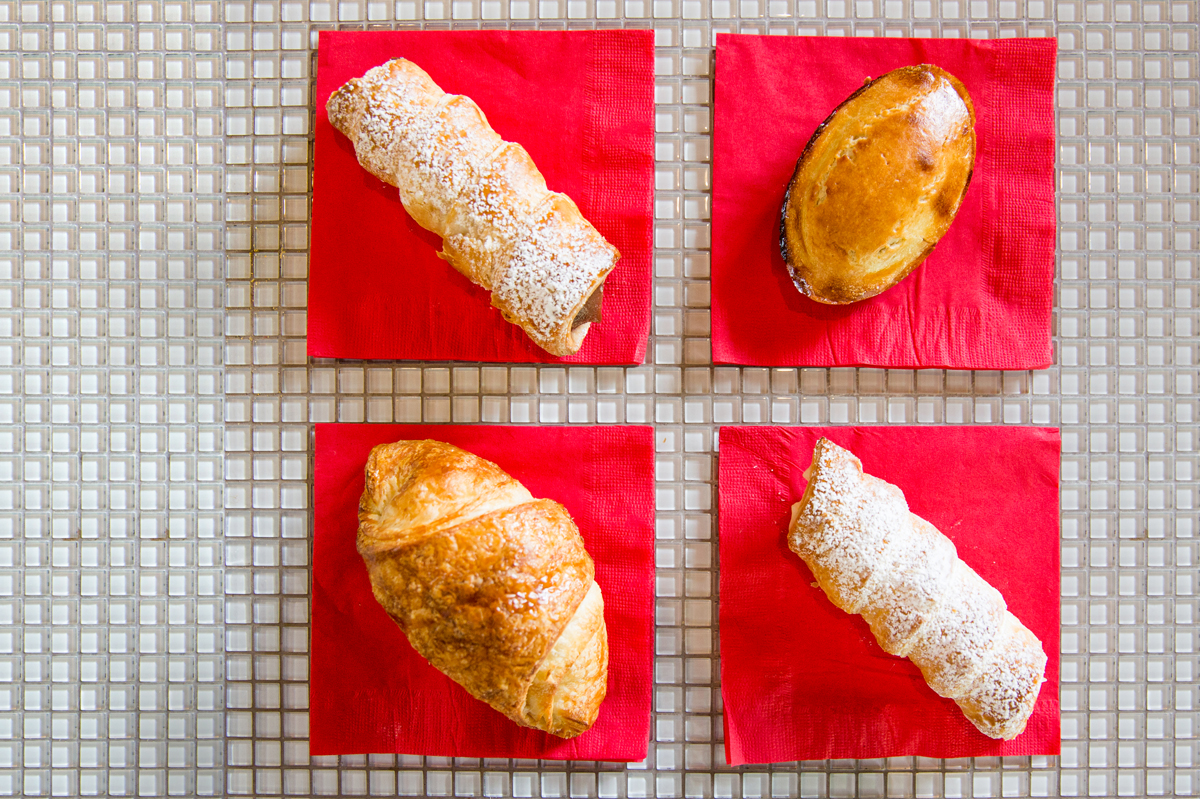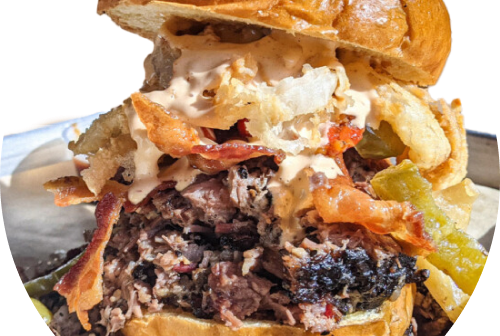The Italian Job
Morning pastries at Corrado Palmieri’s counter are simple: croissant-like cornetti or cannoli dusted with powdered sugar and filled with a thick, gentle vanilla pastry cream. They’re just what you’d find at the counter of a cafe in Italy, where regulars read La Stampa. But you are not in Italy.
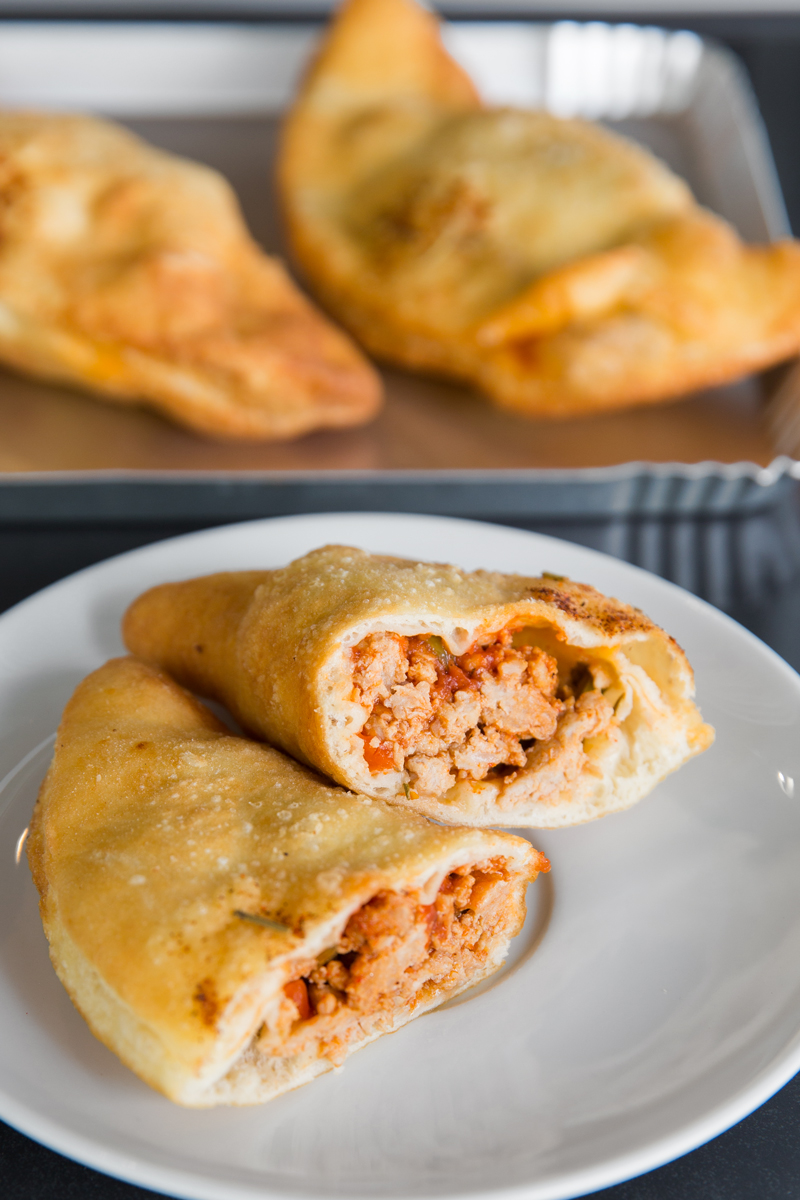
Palmieri graduated cum laude from Bocconi University in Milan, Italy’s premier business school, and worked in investment banking for 10 years. “But my goal,” he says, “was one day starting my own coffee shop and bakery.” He grew up sharing the kitchen with his grandmother, who made cakes, breads, and pastas while he studied. “Baking was like playing,” he says. From her, he learned to make pasticciotto, the buttery short-crust pastry, like a stout sugar cookie filled with vanilla pastry cream, which has been the specialty of his southern Italian hometown, Galatina, for two and a half centuries.
Initially, he thought he would open his bakery in Italy. But the economic crisis made that prospect prohibitively risky. So he returned to Dallas, where he had earned an MBA at SMU. He’d noted French bakeries but no Italian coffee shop of the kind he imagined, so he set out to make the specialties he’d honed during the year he’d returned to Galatina to apprentice under a pastry chef.
Palmieri’s technique and sourcing are meticulous. He took three months to develop the right flour blend. He’s had a vision since he was a child and saw the towers of Galatina’s cement factory—the only factory in town—rise. It’s unromantic, he says, but it was a muse. He would start something from scratch. Something small. Make it grow. That was the dream.
He sets his alarm for 4 am. By 6 am, his corner of the Farmers Market shed is filled with the cheerful patter of Italian radio. There may be no finer taste of Italy than his flaky cannoli or the puffy calzone filled with a savory mix of ground chicken, tomatoes, and green olives, livened with rosemary.
Soup It Up
The small size and care of Joanne Bondy’s operation might tempt you to trot out the old adage “Just like Grandma makes,” but her soups and stocks aren’t just like what your grandmother makes. That’s the point. Bondy is classically trained, with decades of experience. She owned Ciudad D.F. in Oak Lawn, was the executive chef at the Gaylord Texan’s Old Hickory Steakhouse, has cooked at the James Beard House, appeared on TV shows, and been a culinary instructor. Battling breast cancer and caring for elderly parents brought her back to basics. With a new focus, she set out to do one thing and do it exceedingly well.
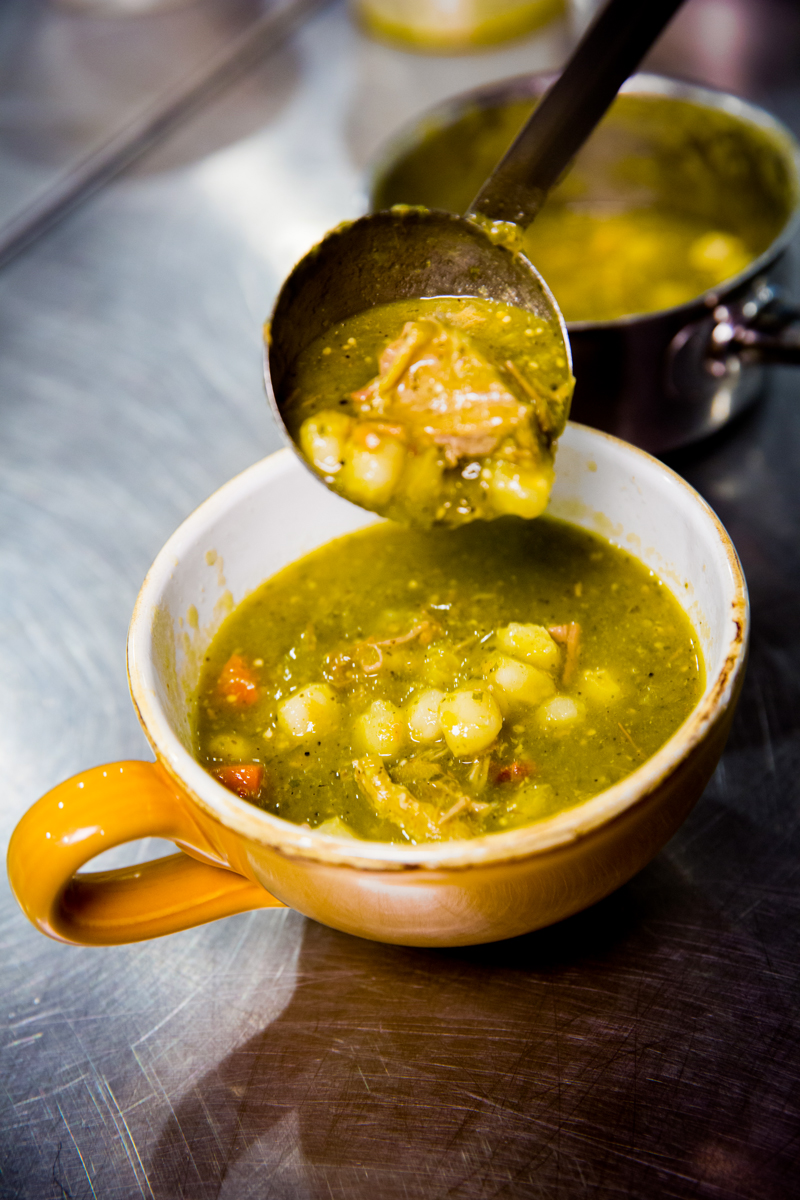
Now all of her training goes into the crafting of seven soups and two stocks. She cares passionately about quality ingredients and maintains relationships with local farmers; two family farms supply her with custom bone blends that give her stocks a coveted gelatinous quality. A setting on her two enormous 40-gallon stainless-steel kettles keeps the stocks from reaching a roiling simmer during their 20 hours of cooking, preventing the violent collisions that can make a stock murky with fat particles. Hers are as clear as consommé.
The pork posole is bright with tomatillos and thick with pulled roasted pork. Texas chili, cozy with spices, uses grass-fed Burgundy Pasture Beef from Grandview. Her lobster bisque, finished with port and brandy, and her cream of mushroom soup, finished with sherry, are some of the best I’ve had. She also cares passionately about educating. Monthly classes she’s calling “Perspective of …” (as in “Perspective of a Cow,” “Perspective of a Pig”) reflect a trend to teach about the whole animal. “It’s time to go deeper, go bigger,” she says.
Meanwhile, one of the smallest treasures is a cup of bone broth, infused with one of seven teas from the Cultured Cup. It might be her chicken stock flavored with an apple-almond black tea, slightly fruity and almost floral. Or basil-lemon oolong combined with her beef stock. All that goodness in a cup.
One Love
If you don’t ask about the doubles, you will miss the most important thing at Caribbean Cabana. Take the two puffy disks of quickly fried dough that sandwich a mound of chickpea curry. Pinch with your fingers. Devour.
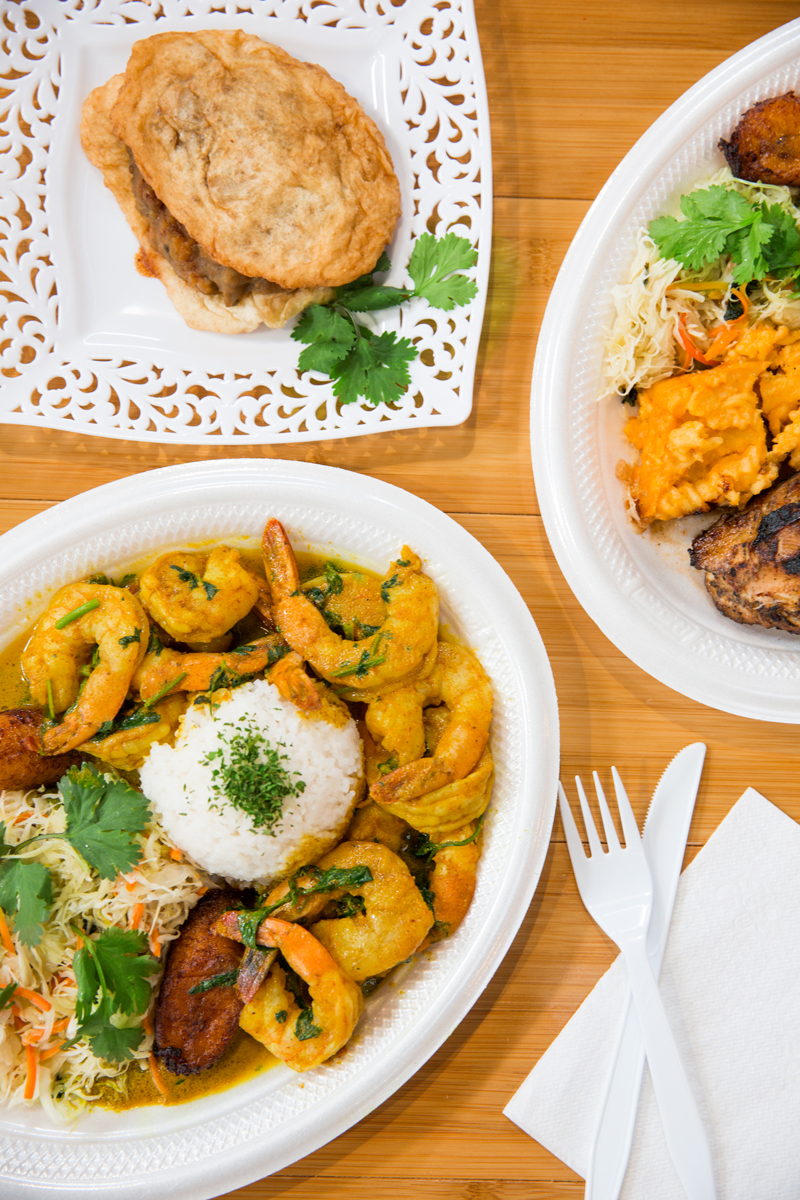
doubles, jerk chicken and macaroni pie, and shrimp curry.
Doubles vendors are the first eagerly awaited stop when Yolande and Robert Plaza get off the plane in Trinidad. They’ll visit one stall, maybe two, when they return to the place they left 28 years ago. In Brooklyn, where they lived before Dallas, there was such an established West Indian community that it never occurred to Yolande to make and sell her island food, though she attended culinary school in Trinidad. In Dallas, her sure hand is a rarer find.
From her small window where tickets hang on clothespins—she designed the stand to look like a beach shack—she serves up a bright yellow, turmeric-rich curry or jerk chicken with plenty of heat. Sides might include rice and pigeon peas, plantains, or macaroni pie so rich a slice stands up by itself. Shrimp curry is cooked to order, and the goat curry and oxtail routinely sell out. Yolande’s mother is Venezuelan, which is why you’ll also find her tostones, smashed plantain fritters.
Some of the simplest street foods are the trickiest and most time-consuming to make: roti, a tear-apart crêpe with ground split peas folded in; fry-bake, a soft puff of fried dough, like an enormous jelly doughnut, which is used for sandwiches.
“A lot of the food is made by feel and by touch,” Yolande says. “Even in Trinidad, it’s basically more the older heads that know how to do these things.”
To talk with the Plazas for any length of time will make you salivate. Maybe it’s the way they roll their eyes heavenward and shake their heads as they describe aloo pie, filled with seasoned mashed potatoes and served with chutney, or callaloo, a soup traditionally made from a green that looks like elephant ears. Robert remembers puréeing it for his mother with a traditional wooden swizzle stick. “People come and know, and they ask for it,” he says. The pie and soup might become regular additions. But for now, they remain off-menu items with a cult following.
Silk Roadside Diner
Afifa Nayeb is from Kabul, and many of her recipes have been passed down over generations. “On my mother’s side, everyone was cooking. They had the touch,” she says. The mantoo dumplings with tofu-spinach filling? Those are all her own, a vegetarian variation on the traditional meat filling.
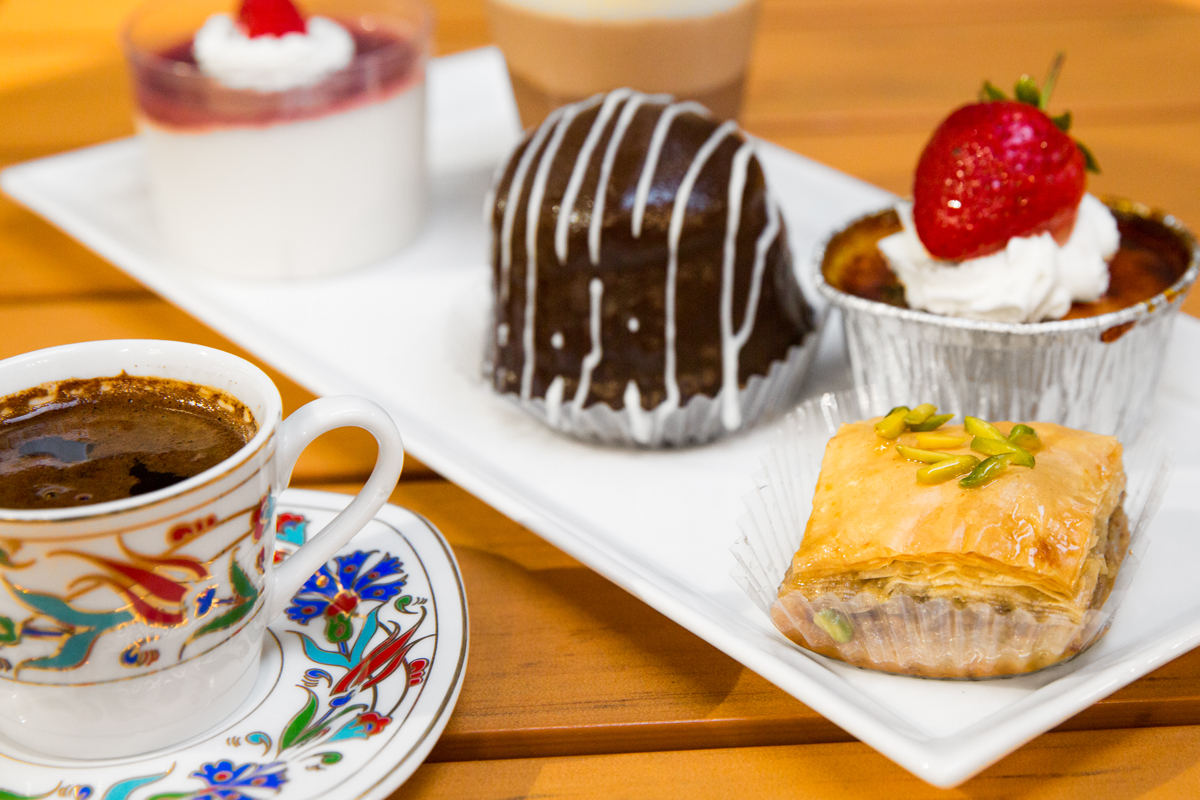
Nayeb’s background is in business and finance—she owned five locations of Western Mutual—but, she says, “I want to feed people. It’s my passion.” So when her daughter left for college, Nayeb enrolled in culinary school to earn a degree in pastry. “The day she went to college, I went to culinary college. We both went together.” In culinary school, Nayeb met Nevin Kaya, who has a background in mathematics and roots in Istanbul. Their partnership produced Laili’s particular mingling of Afghan food, Turkish pastries, and French desserts.
Sipped at the counter, Turkish coffee comes in cups with Iznik tile designs and has its requisite layer of silt. Despite the many elements of refinement in Afghan cuisine, the space constraints at the Farmers Market encouraged the pair to focus on the street foods of the Silk Road countries. Nayeb’s own penchants made her prioritize eco-friendliness and health. Theirs is a “green” kitchen: no wood-fire grilling, no smoke, no frying. Everything is cooked in the high-end, energy-efficient oven that is the kitchen’s primary tool. So the kebabs are roasted, served in pillowy bread with a garlicky cilantro-yogurt sauce and a garden salad. Dishes are beautifully plated and vibrant. Red bell peppers stuffed with rice, studded with pine nuts and slivered almonds—another family recipe—come with pretty swishes of red-pepper purée, yogurt sauce, and puffy Afghan bread. In the spirit of a bazaar, there are things to take away; I never leave without the smooth, smoky eggplant dip, a square of syrup-soaked baklava, or a custardy crème brûlée.


